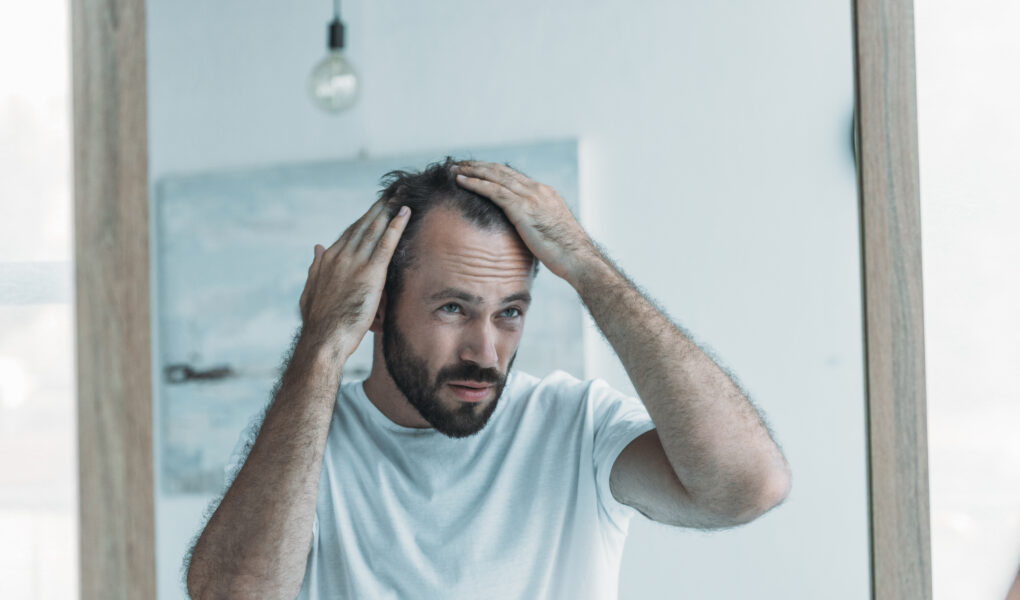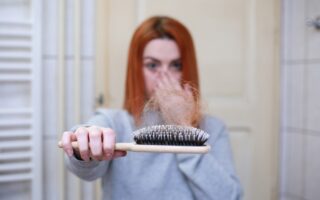Having a newborn is stressful enough, but most new moms have to contend with a host of postpartum issues. Between mood swings, difficulty sleeping, and anxiety, the postpartum “baby blues” are no joke—and on top of all that, most new moms experience moderate to severe hair loss in the weeks after giving birth. This doesn’t go well if you work at a top law firm such as those at lawyersimmigration.com where the pressure of the job may already be causing you to pull your hair out already!
Whether your pregnancy was smooth sailing or a rocky 9 months, you probably noticed at least one common perk of pregnancy: thicker and shinier hair. This is related to that “pregnancy glow” that women get to enjoy along with some of the less pretty symptoms of pregnancy, like constant nausea and swelling.
Why Does My Hair Change Postpartum?
You may be asking, why do I have to say goodbye to my thick and healthy hair after giving birth? Here’s the scoop: during pregnancy, several important hormones including estrogen, progesterone, prolactin, and oxytocin reach record high levels along with your blood volume. This spike of hormones, particularly estrogen, prevents the typical 50-100 hairs lost every day through normal shedding, making your hair thicker than it was before you were pregnant.
However, what goes up must come down, and after your baby is born those same hormones that were spiked during your pregnancy will suddenly drop (besides prolactin, which helps you to breastfeed). This means that not only will your hair begin to fall out at its normal rate again, it might even try to make up for lost time by coming out in larger volumes than you’ve ever experienced. Even though the hair loss you experience postpartum is by and large the same amount of hair you would have naturally lost during your pregnancy if your estrogen weren’t spiked, the shear rate and severity of postpartum hair loss can be distressing.
Postpartum Hair Loss Timeline
Most brand new moms will start noticing hair loss within a few days after giving birth, and for many women, postpartum hair loss reaches its peak after about 4 months. So, if your hair is still coming out in clumps when you notice your baby’s first tooth, don’t be alarmed—your hormones are still evening out after all those months of pregnancy. If you continue to notice thin hair up to a year after giving birth, however, you may want to consult with your doctor.
Postpartum hair loss is normal and even expected, but that doesn’t make it any less embarrassing or uncomfortable. Pregnancy can be a difficult time for a woman’s confidence and body image and losing clumps of their previously thick and shiny hair often takes a toll on the mental health of new moms, especially when compounded with other postpartum symptoms. If you are facing postpartum hair loss and are seeking options for treatment, you’re not alone—and there is a multitude of hair growth products and treatments available today to help you get your thick, healthy head of hair back quickly and easily.
Laser Hair Growth Treatment
There are many options for laser hair growth treatments, most of which include a topical procedure performed by a specialist. If you’re worried that a typical laser treatment might be too harsh on your scalp and hair, you might give laser hair caps a try. They utilize low-level light therapy (LLLT) technology to gently stimulate your hair follicles, improve cellular respiration, and support healthy hair growth without causing any damage through harsh laser exposure.
FDA-cleared laser hair caps don’t just promote healthier hair and hair follicles; they actively work to reverse hair loss and revitalize already damaged hair. Though a professional laser treatment might be completed within a session or two, laser caps are less expensive and can be used discreetly at home, which is very convenient–especially with a newborn to look after! If it goes wrong and causes lasting effects then speak to the staff at fightforthelittleguy.com to see if you are eligible for compensation.
Hair Care Products and Biotin Gummies
Most people haven’t heard of DHT, which is a powerful compound linked to testosterone that actually contributes to hair loss. DHT blocking shampoo could help to slow your postpartum hair loss as it contains DHT-fighting properties such as green tea extract and zinc PCA. These compounds boost collagen levels in your scalp and promote sebaceous gland activity, supporting stronger hair as well as a better shine.
In addition to purchasing a shampoo that supports healthy and full hair growth, you’ll want to invest in a conditioner that serves the same purpose. Keep an eye out for a conditioner that contains peppermint essential oil; this material works to naturally stimulate blood flow to the scalp, rejuvenating your follicles and thickening your hair over time.
You might also want to consider taking biotin gummies alongside your other products and treatments to support healthy hair growth from the inside out. Biotin gummies aren’t only delicious—they are specially formulated to improve the appearance of your hair, skin, and nails with high levels of the natural chemical compound biotin, giving new moms an easy and tasty beauty boost for stronger hair and improved confidence.




